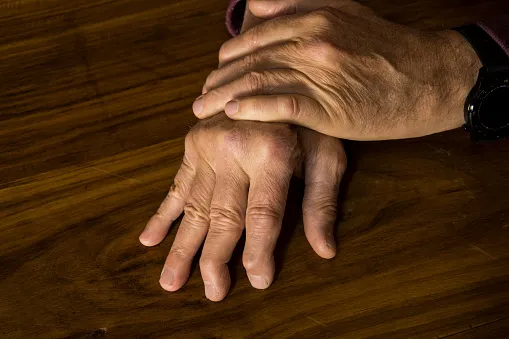Arthritic diseases, such as psoriasis, are the most common form of rheumatoid disease. They affect over 70 million Americans.
Psoriasis is caused by an autoimmune disorder, which means that the body’s immune system attacks its own cells. It affects around 2% of people worldwide and 1.45% of the US population.
There is no cure for psoriasis, but treatments do exist to help control symptoms. Medications can include topical creams, pills, light therapy, and phototherapy. Patients may also need to adjust how they live in order to manage flare-ups.
When you are dealing with a chronic illness like psoriasis, it is important to find ways to cope with it so that you can continue to function at your best.
What Is Psoriatic Arthritis?
Psoriasis is a chronic skin condition that causes red patches to appear on the body. This disease affects approximately 2% of Americans. Some of these people have severe cases, while others may be able to manage their symptoms with medications. If you suffer from this type of dermatitis, you should know how to treat yourself.
There are two different kinds of psoriasis. One kind is known as plaque psoriasis. This form of the disease usually appears on the elbows, knees, scalp and other areas of the body. The second kind of psoriasis is known as pustular psoriasis. People who suffer from this version of the disease will develop small blisters on their bodies.
Psoriasis can affect people at any age. However, most sufferers are between 30 and 60 years old. There is no cure for psoriasis, but there are some treatments available. You might want to consider getting a prescription medication if you find that your condition is affecting your daily life.
Signs & Symptoms
Psoriasis is a skin disease that causes red, scaly patches to appear on your body. There are many different types of psoriasis, including guttate psoriasis, erythrodermic psoriasis, pustular psoriasis, plaque psoriasis, and seborrheic dermatitis.
Many people have no idea that they suffer from psoriasis until it begins to affect their appearance. However, it’s important to know that there are several signs and symptoms associated with psoriasis, and it can be difficult to diagnose without proper testing.
Here are some of the most common signs and symptoms of psoriasis.
Redness: The first sign of psoriasis is a feeling that your skin is burning. This usually happens when the top layer of your skin is damaged. When this occurs, your immune system starts to produce chemicals that cause inflammation.
Itching: You may also notice itching in areas where you don’t normally feel pain.
Diagnosis
Psoriasis is a chronic skin condition that affects approximately 1 percent of the world population. Although psoriasis can affect anyone, it most commonly occurs in young adults between the ages of 20 and 40.
There are two main types of psoriasis: plaque-type psoriasis and guttate-type psoriasis. Plaque-type psoriasis involves patches of red, scaly, inflamed skin. Guttate-type psoriasis usually appears on the scalp, face, arms, legs, or genitals.
Although there are no known causes of psoriasis, the disease tends to run in families. The risk of developing the condition increases with age.
If you have any concerns regarding your health, then it’s important to consult a doctor. You should also make sure that you get regular medical checkups. This is especially true if you’re experiencing symptoms of depression or anxiety.
Treatments
Psoriasis is a chronic skin condition that causes red patches to form on the body. The most common symptoms of psoriasis include itching, burning, pain, and swelling. If you have psoriasis, it can be very difficult to live with. Fortunately, there are many treatments available.
Treating Psoriasis
There are several different ways to treat psoriasis. Some of these methods involve taking medications, while others focus on changing your diet.
Medications
Some of the first-line treatment options for psoriasis are topical creams and ointments. These products contain ingredients like steroids, vitamin D3, and coal tar.
In addition to treating the visible signs of the disease, there are also prescription drugs that can help control the inflammation in your skin.
These drugs may work by blocking certain chemicals that cause your immune system to become overly active.
Self-care
If you have psoriasis, then you know how difficult it is to keep yourself clean. You might be tempted to just let your skin get dirty, but that won’t help you. Instead, you should make sure that you’re taking care of yourself.
When you start to feel better, you’ll want to spend more time doing fun things. However, don’t forget to take the time to relax and enjoy life.
You need to understand that you can never go back to being healthy. That means that you need to focus on staying fit and making the best choices possible.
It’s important to learn self-care skills so that you can avoid getting sick in the first place. If you do catch a cold, you’ll be able to recover much faster than someone who hasn’t taken good care of themselves.
Conclusion
If you have psoriasis, then you might be wondering why your skin condition is so persistent. If you want to know more about the causes of psoriasis, then keep reading. This article will explain how the body reacts to certain triggers that cause psoriasis to flare up.
There are many different factors that contribute to this problem. Some of these include genetics, stress, and an unhealthy diet. However, the most important factor is the environment. The environment can affect your health in a number of ways, including causing diseases. When you’re looking to prevent yourself from getting psoriasis, you need to focus on the things that you can control.
When you look at the environment, you’ll notice that it’s full of chemicals and pollutants that may trigger your disease. For example, you should avoid using products that contain parabens. Parabens are synthetic substances used to make cosmetics. While they aren’t necessarily bad, you shouldn’t use them because of their potential side effects.
You also don’t want to eat foods that have been treated with pesticides.

